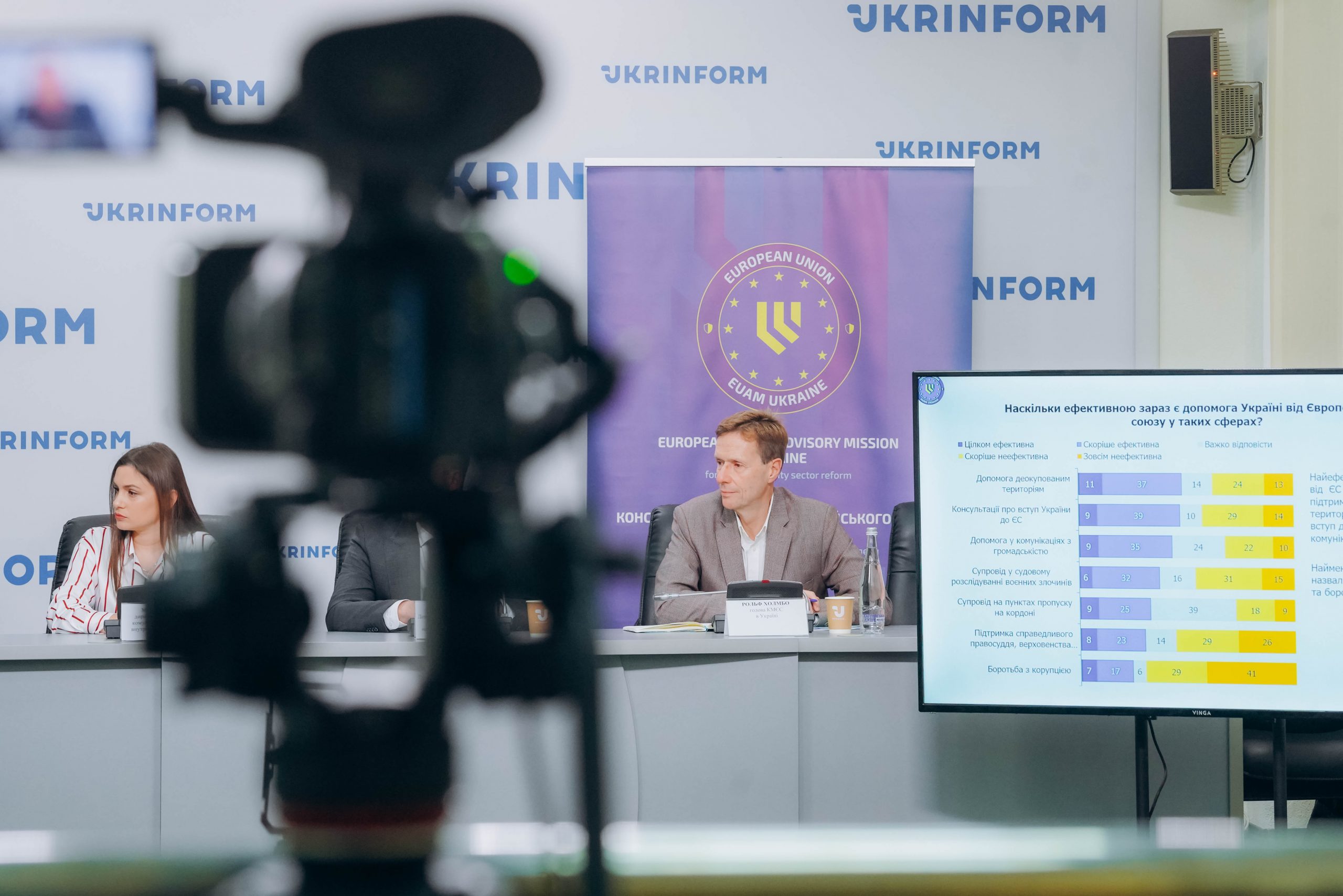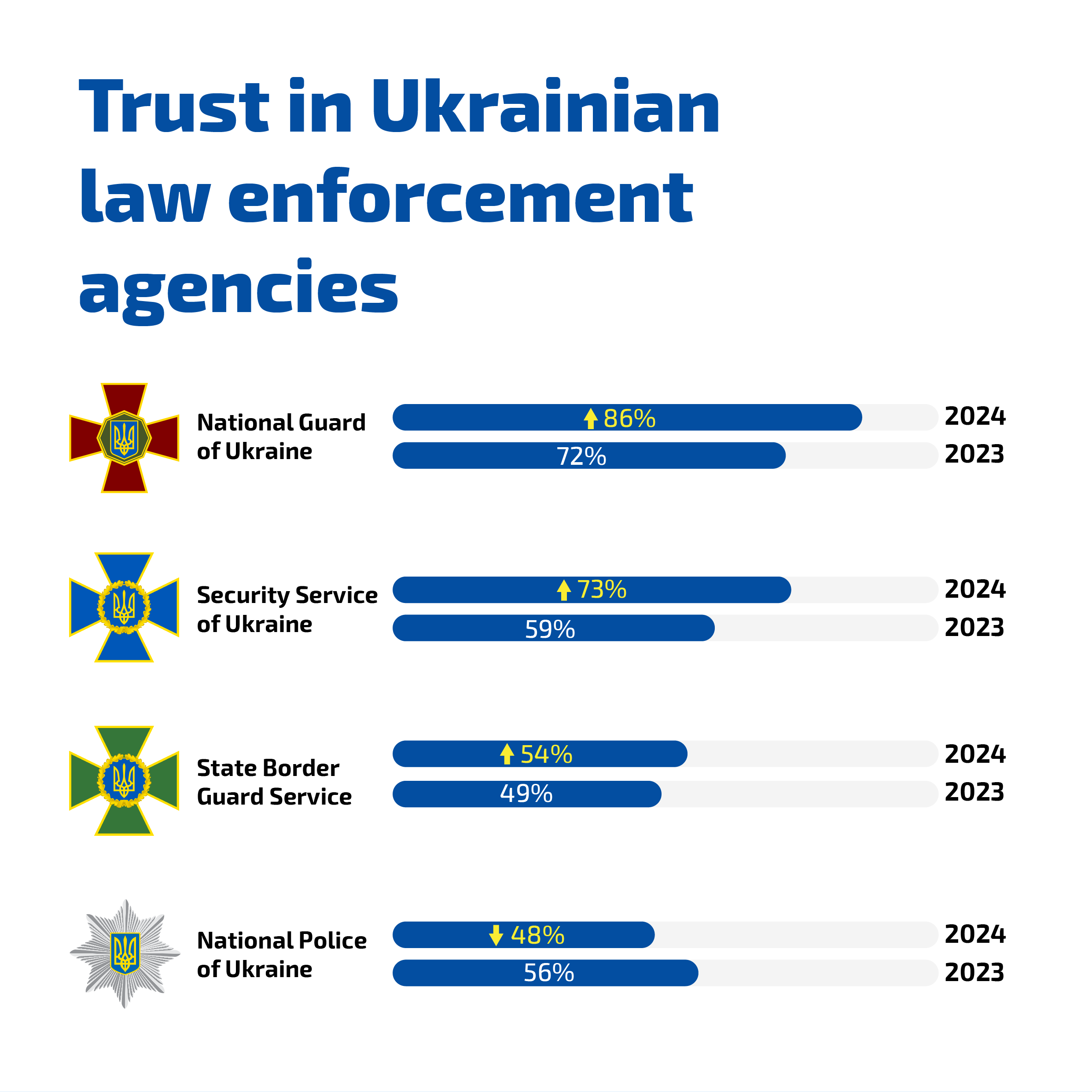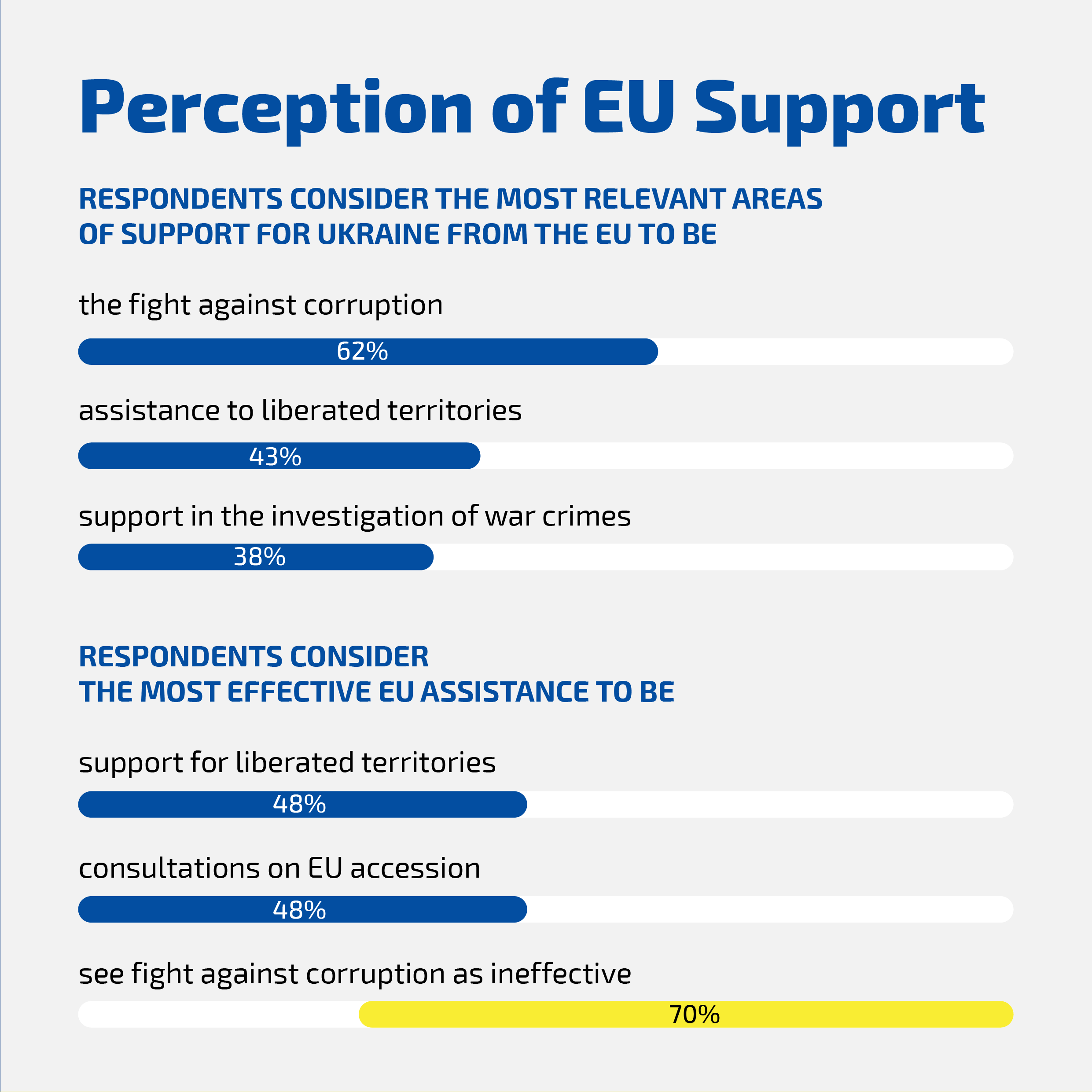SUCCESS OR NOT? HOW UKRAINIANS ASSESS LAW ENFORCEMENT REFORMS AND THE EU’S SUPPORT
October 28, 2024
On 28 October 2024, EUAM Ukraine unveiled results from a nationwide public opinion survey (read the full report here.) conducted by Rating Group for the Mission. Presented at the Ukrinform press centre, the findings highlighted levels of public trust in law enforcement and judiciary, attitudes towards reforms and EU support in these areas, as well as key information sources relied on by Ukrainians. The event featured remarks from Rolf Holmboe, Head of EUAM Ukraine, Oleksii Antypovych, the Head of Rating Group, Mariana Reva, the Head of the Communication Department at the Ministry of Internal Affairs, and Kyrylo Viktorov, the Deputy Head of the Center for Countering Disinformation’s Department for Countering Information Threats to National Security.

Trust in Law Enforcement and Judiciary
According to the survey, the National Guard of Ukraine has the highest public trust among law enforcement agencies, with 86% of respondents expressing confidence, up from 72% in 2023. The Security Service of Ukraine follows with 73%, an increase of 14% from the previous year.
Other institutions, such as the State Border Guard Service, are trusted by 54%, but 42% of respondents distrust it. Both the National Police and the Ministry of Internal Affairs have 48% trust, but also considerable levels of distrust (51% and 38% respectively). Trust in the National Police has slightly decreased since 2023 (down from 56%).

The State Bureau of Investigation has a 45% trust rate, with 50% expressing distrust. The National Anti-Corruption Bureau, the Prosecutor General’s Office, and the State Customs Service share similar trust levels (around 33%), while over 60% do not trust these institutions.
Finally, the judiciary holds the lowest level of trust, with only 25% expressing confidence and 72% showing distrust.
Attitudes Towards Reforms and EU’s Support
The survey shows that 74% of respondents view fighting corruption as the most critical reform. Reforms in national security, defence, and the judicial system also garnered 36% support each, while police and customs reforms are priorities for 10% of respondents.

The digital transformation reform received the highest approval, with 66% of respondents fully or mostly satisfied, 20% dissatisfied, and 13% uncertain. Half of the respondents expressed satisfaction with gender equality initiatives, while 30% were dissatisfied and 21% were undecided. National security reform showed a balance, with 46% satisfied, 47% dissatisfied, and 7% unsure. Police reform left 57% dissatisfied and 40% satisfied. Customs reform saw 56% dissatisfaction, 30% satisfaction, and 15% undecided. Judicial reform had the lowest satisfaction, with 73% dissatisfied and only 21% satisfied, while anti-corruption efforts were rated the poorest, with 15% satisfied and 84% dissatisfied.
When it comes to EU support, assistance to liberated territories (43%), support in investigating war crimes (38%), and ensuring fair justice (31%) rank among the most relevant areas for Ukraine, with fighting corruption leading at 62%. Notably, the survey also shows that among these priorities, EU support for liberated territories is viewed as the most effective, with 48% of respondents rating it positively, and support for war crimes investigations deemed effective by 38%.

Information Sources
According to the survey, Telegram is the most popular source of information for 47% of respondents, followed by YouTube (26%), the United Marathon (21%), and eyewitness accounts and official government sources (both 19%). Other sources include television channels not part of the United Marathon (16%), Ukrainian online media (15%), and international media (14%).
Social media is viewed as the main source of disinformation (53%), followed by messenger channels (including Telegram) (35%) and television (32%). 89% of respondents see disinformation as a serious problem, with 56% considering it “very serious” and 33% viewing it as “somewhat serious.” Only 10% don’t consider it serious.
Survey Methodology
This survey was conducted between 24 and 29 September 2024 using Computer-Assisted Telephone Interviewing (CATI), with a sample size of 2,000 respondents representing Ukraine’s adult population (excluding temporarily occupied territories and areas without Ukrainian mobile communication). The margin of error is 2.2% with a 0.95 confidence level.


